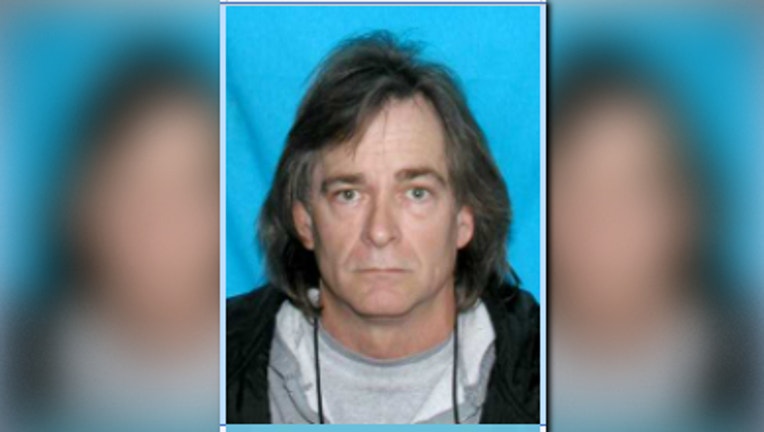Suspected Nashville bomber's girlfriend warned he was building bombs

Federal authorities on Sunday identified the suspect in the Christmas Nashville RV bombing as Anthony Quinn Warner. (Source: FBI)
NASHVILLE, Tenn. - More than a year before he detonated a bomb in downtown Nashville on Christmas, officers visited Anthony Warner’s home after his girlfriend told police that he was building bombs in an RV trailer at his residence, according to documents obtained by The Associated Press. But they were unable to make contact with him, or see inside his RV.
Officers were called to Pamela Perry’s home in Nashville on Aug. 21, 2019 after getting a report from her attorney that she was making suicidal threats while sitting on her front porch with firearms, the Metropolitan Nashville Police Department said Tuesday in an emailed statement. A police report said Raymond Throckmorton, the attorney, told officers that day he also represented Warner.
When officers arrived at Perry’s home, police said she had two unloaded pistols sitting next to her on the porch. She told them those guns belonged to "Tony Warner," police said, and she did not want them in the house any longer. Perry, then 62, was then transported for a psychological evaluation after speaking to mental health professionals on the phone.
Throckmorton told The Tennessean Perry had fears about her safety and thought Warner may harm her. The attorney was also at the scene that day, and told officers Warner "frequently talks about the military and bomb making," the police report said. Warner "knows what he is doing and is capable of making a bomb," Throckmorton said to responding officers.
READ: Witness to Nashville blast 'extraordinarily lucky' after leaving building minutes before explosion
Police then went to Warner’s home, located about 1.5 miles (2.4 kilometers) from Perry’s home, but he didn’t answer the door when they knocked several times. They saw the RV in the backyard, the report said, but the yard was fenced off and officers couldn’t see inside the vehicle.
The report said there also were "several security cameras and wires attached to an alarm sign on the front door" of the home. Officers then notified supervisors and detectives.
"They saw no evidence of a crime and had no authority to enter his home or fenced property," the police statement said.
After officers visited Warner’s home last August, the police department’s hazardous devices unit was given a copy of the police report. During the week of August 26, 2019, they contacted Throckmorton. Police said officers recalled Throckmorton saying Warner "did not care for the police," and that he wouldn’t allow Warner "to permit a visual inspection of the RV."
PREVIOUS: After naming Christmas Day bombing suspect in Nashville, focus turns to motive
Throckmorton disputes that he told police they couldn’t search the vehicle. "I have no memory of that whatsoever," he told The Tennessean. "I didn’t represent him anymore. He wasn’t an active client. I’m not a criminal defense attorney."
Throckmorton told the newspaper he represented Warner in a civil case several years ago, and that Warner was no longer his client in August 2019. "Somebody, somewhere dropped the ball," he said.
A day after officers visited Warner’s home, the police report and identifying information about Warner were sent to the FBI to check their databases and determine whether Warner had prior military connections, police said.Later that day, the police department said "the FBI reported back that they checked their holdings and found no records on Warner at all." FBI spokesperson Darrell DeBusk told The Tennessean the agency had conducted a standard agency-to-agency record check.
Six days later, "the FBI reported that Department of Defense checks on Warner were all negative," the police department said.
No other information about Warner came to the department or the FBI’s attention after August 2019, police said. "At no time was there any evidence of a crime detected and no additional action was taken," the statement said. "The ATF also had no information on him."
Warner’s only arrest was for a 1978 marijuana-related charge.
The bombing happened on Christmas morning, well before downtown streets were bustling with activity. Police were responding to a report of shots fired Friday when they encountered the RV blaring a recorded warning that a bomb would detonate in 15 minutes. Then, for reasons that may never be known, the audio switched to a recording of Petula Clark’s 1964 hit "Downtown" shortly before the blast. Dozens of buildings were damaged and several people were injured.
Investigators have not uncovered a motive for the Christmas day bombing nor was it revealed why Warner had selected the particular location, which damaged an AT&T building and has continued to wreak havoc on cellphone, police and hospital communications in several Southern states as the company worked to restore service.

